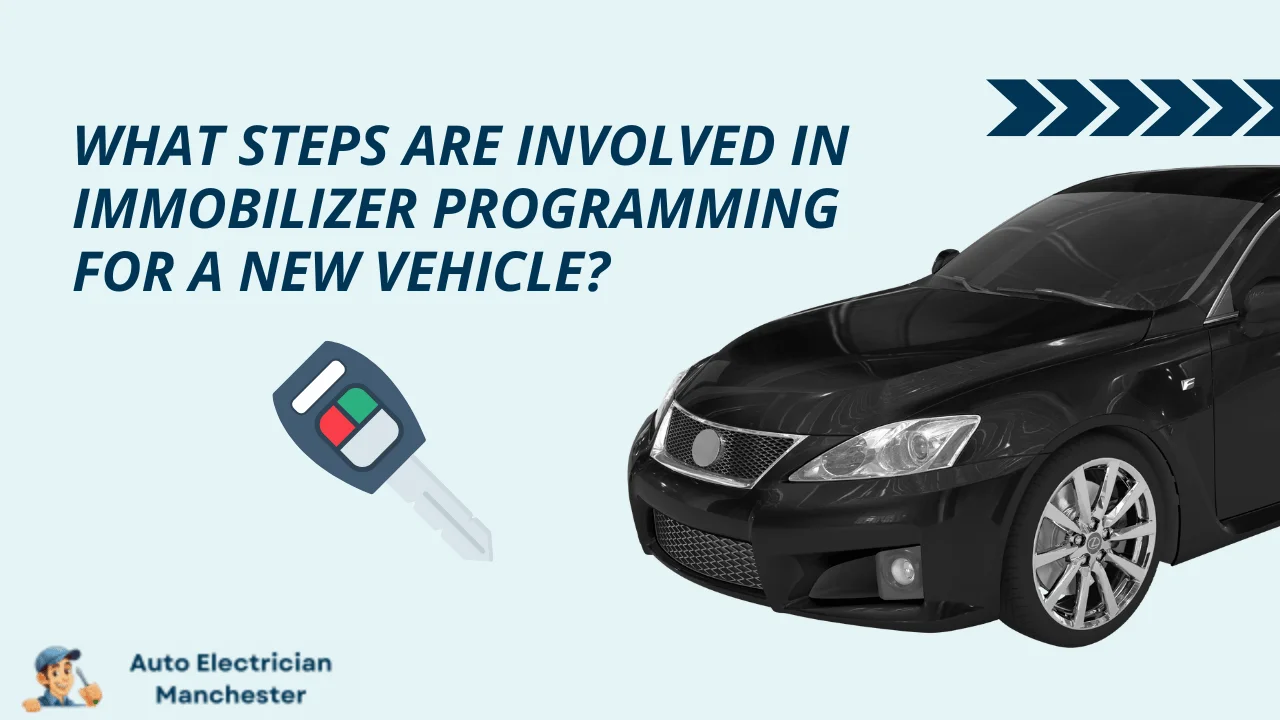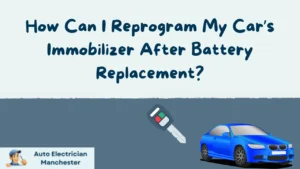
For many new car owners, the concept of immobilizer programming can be a source of confusion. This crucial security system safeguards your vehicle against unauthorized starts, but what happens when you need a new key? Can you tackle this task yourself, or is professional intervention necessary? This guide will unveil the steps involved in immobilizer programming for new vehicles, empowering you to make informed decisions.
Who Needs This Guide?
This guide is designed for two distinct audiences:
Do-It-Yourself Enthusiasts: If you’re a confident DIYer and relish tackling automotive projects, this guide will provide a general overview of the immobilizer programming process. However, it’s crucial to understand the inherent risks involved.
Informed Consumers: Even if you plan to enlist professional help, understanding the basics of immobilizer programming empowers you to ask informed questions and make confident choices when selecting a qualified locksmith or dealership.
Key Programmers vs. Manufacturer Methods
Modern immobilizer systems function by electronically verifying the legitimacy of a key before allowing the engine to start. There are two primary approaches to programming new keys for your vehicle’s immobilizer:
Specialized Key Programmer Tools: These tools connect directly to your car’s diagnostic port (OBD-II). They offer a powerful solution, often enabling the extraction of existing immobilizer data and the programming of new keys.
Manufacturer Reprogramming Sequences: Car manufacturers often provide specific sequences of actions that can be performed within the vehicle itself, typically involving inserting and turning the key in a designated order.
Manufacturer Reprogramming
While manufacturer reprogramming sequences may seem appealing, they come with significant caveats:
Highly Variable Procedures: These procedures differ dramatically between car manufacturers and even across different models from the same brand. Consulting your vehicle’s manual is paramount, as even minor deviations can render your car inoperable.
Complex Sequences: These procedures often involve intricate sequences using your existing key and may necessitate programming multiple new keys simultaneously. Following the instructions meticulously is essential to avoid unintended consequences.
Key Programmer Method
The key programmer method offers a potentially more streamlined approach:
Dedicated Programmer Tool: This method necessitates a specialized programmer tool. These tools can be a significant investment and may require specific software designed for your car’s make and model.
OBD-II Connection and Data Extraction: The programmer typically connects to the OBD-II port, retrieving existing immobilizer data.
New Key Fob Programming: Blank key fobs are inserted into the programmer, where they’re coded with the extracted data, effectively transforming them into authorized keys for your vehicle.
Why Professionals Often Shine?
While the allure of DIY projects is undeniable, immobilizer programming is an area where seeking professional help is often the wisest course of action:
Risky Business: Incorrect procedures during DIY immobilizer programming can leave your car immobilized. The potential cost and inconvenience of rectifying such a situation can far outweigh any initial savings.
Expertise and Tools: Professional locksmiths and dealerships possess the experience and specialized tools to program your keys efficiently and securely. Their knowledge and equipment minimize the risk of errors.
Final Words
Immobilizer programming plays a vital role in safeguarding your new car. If you’re a seasoned DIYer comfortable with potential risks, this guide has equipped you with a foundational understanding of the process. However, for most car owners, the benefits of trusting a qualified professional far outweigh the potential pitfalls of DIY attempts. Peace of mind and a smoothly running vehicle are invaluable assets, and consulting a locksmith or dealership ensures both.
FAQ
Can I program a new key for my new car’s immobilizer myself?
Technically, it’s possible with the right knowledge and tools. However, this process is intricate and carries significant risks. Unless you’re a highly confident DIYer, seeking professional help is strongly recommended.

David Mack is a seasoned writer with a passion for the auto electrician niche. With years of hands-on experience and a knack for demystifying complex topics, David brings practical insights to his readers. Whether you’re a professional or a car enthusiast, his engaging articles offer valuable tips and trends in auto electrical systems.
